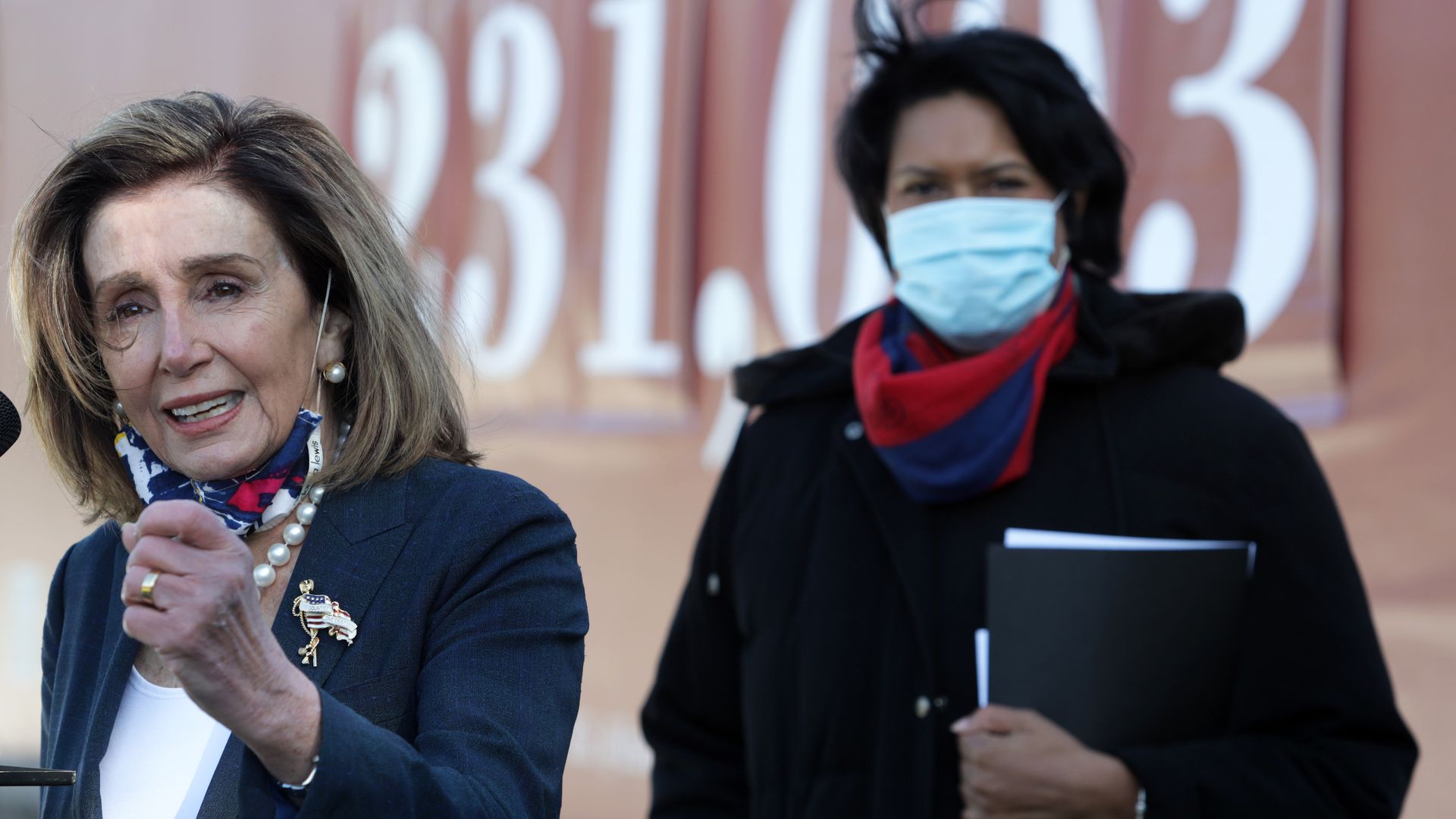Apr 22, 2021 - Politics & Policy
House passes bill that would make D.C. the 51st state
Add Axios as your preferred source to
see more of our stories on Google.

House Speaker Nancy Pelosi and Washington, D.C. Mayor Muriel Bowser. Photo: Alex Wong/Getty Images
